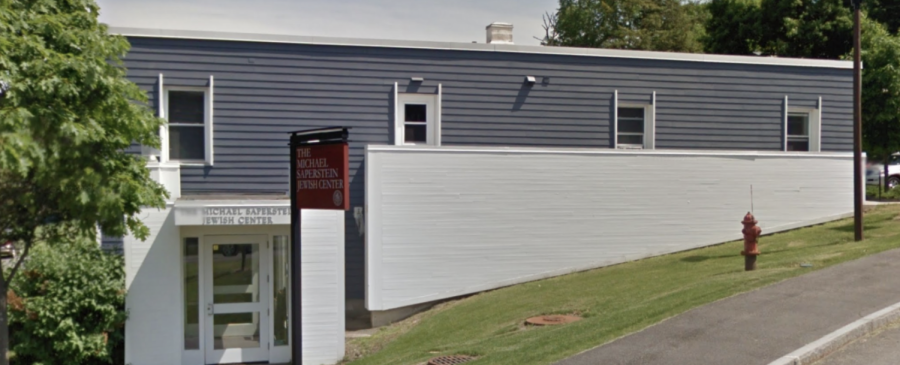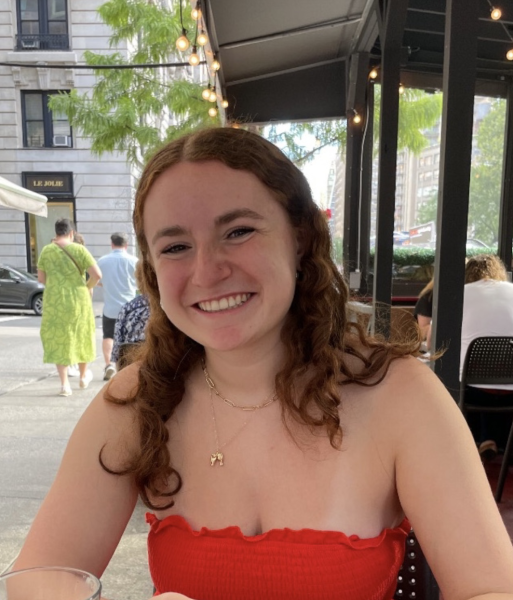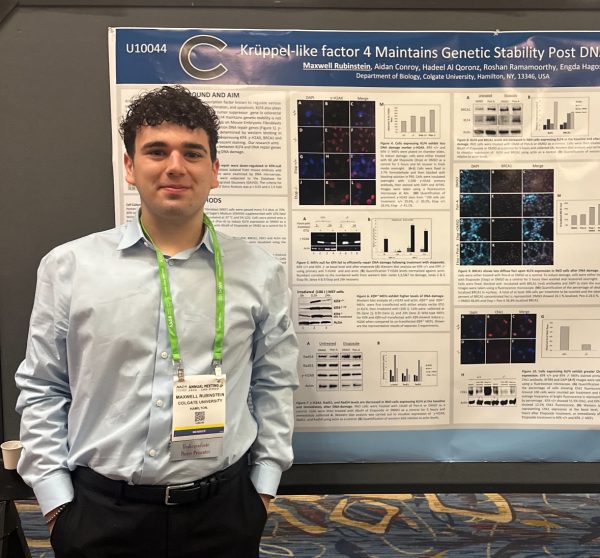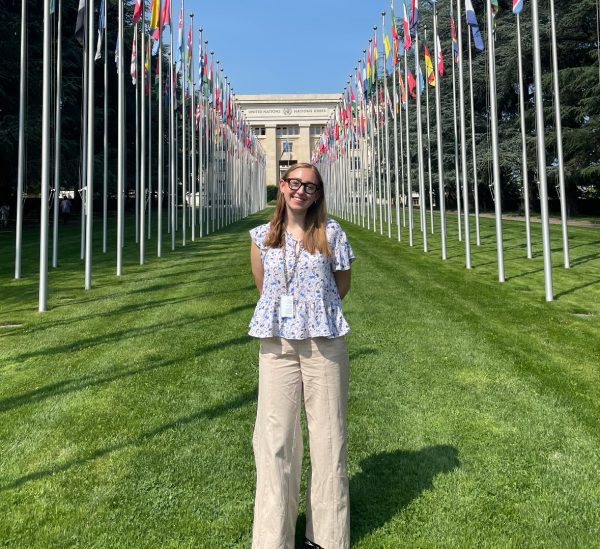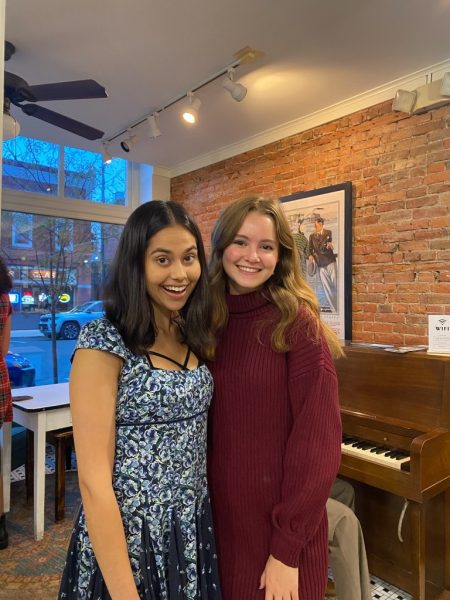Spotlight on the Jewish Community at Colgate
The lively Jewish community at Colgate University is characterized foremost by its broad expanse and range across multiple other organizations, groups and locations.
The Michael Saperstein Jewish Center, which houses leisure and study spaces, a classroom, a kosher kitchen and an extensive library, is a unique physical space on campus where the Jewish community can come together. Overseen by Barry Baron, University chaplain and rabbi, the Saperstein Center serves multiple academic, social and religious purposes. Perhaps most significantly, the Saperstein Center is home to the Colgate Jewish Union (CJU), a student-led group at the center of engaging the Jewish community on Colgate’s campus. Senior and co-president Aliza Reinstein described the role of her organization in Jewish life at Colgate.
“The purpose of the Colgate Jewish Union is to provide students who are interested in learning about Judaism, or who are Jewish, or just want a safe space, to meet new people and have a good time, and to come together and get to know one another,” Reinstein said.
The organization offers weekly Shabbat services on Friday evenings, where students and faculty sing to welcome in Shabbat, the Jewish day of rest, and then enjoy a home-cooked meal prepared in the Saperstein Center kitchen. They also offer Saturday morning Shabbat services bi-monthly, which are attended by faculty members who are Jewish or otherwise interested in Jewish life, allowing students to meet and mingle with a wider Jewish community.
CJU has also conceived of its own unique variations on the traditional Jewish Shabbat ceremony. For example, Reinstein is looking forward to Senior Shabbat, where the community comes together to give each senior member of CJU a meaningful book humorously personalized to their interests and experiences. Rabbi Baron remarked that he found the best part of his job at Colgate to be leading Boathouse Shabbat every fall.
“My favorite program of the year is Boathouse Shabbat. We go out to the boathouse, and we have a service on the dock and the students are facing the water. Then we go in this building that they have and eat Tex-Mex for dinner, and then we go back downstairs and play on the canoes and the kayaks and paddleboards and everything else,” Baron explained. “It’s like my absolute favorite thing. I was out in this kayak last September, I was sitting there like ‘wow, Colgate pays me to do this!’”
The popular Sunday morning Bagel Brunch in the Saperstein Center is also organized by the CJU. The organization does even more, such as putting together non-religious, secular programming such as film and television screenings at the Hamilton Movie Theater. CJU also hosts special services for the Jewish High Holy Days of Rosh Hashanah and Yom Kippur, recently organizing a special Passover dinner called a Mimouna for the first time, a traditional celebration for Sephardic and Maghrebi Jews to mark their return to eating leavened foods after the week of Passover ends.
Chabad exists as an additional off-campus community for Jewish students to socialize with each other and learn about their heritage and religion, served by Rabbi Shmuly Haskelevich and his wife Chaya Haskelevich. Chabad offers diversity in terms of Jewish life at Colgate, providing a more traditional style of Judaism in comparison to the social progressivism of CJU. It has historically hosted students for traditional Jewish holidays. Rabbi Haskelevich explained how Chabad can serve the Colgate Jewish community.
“We wanted to create a space where all Jewish students can feel at home,” Haskelevich said. “Regardless of their affiliation and observance they can join our family for a Shabbat or holiday dinner, a discussion with a Jewish perspective on any given topic or have a coffee with Chaya or myself.”
Haskelevich emphasized that his community is tolerant of all interested students, no matter the approach to Judaism with which they identify.
“The philosophy of Chabad, which is rooted in the idea of ‘Ahavt Yisroel’, [meaning] to love your fellow as yourself, is permeated in everything we do at Chabad,” Haskelevich mused. “If we are baking challah together at Chabad, we might discuss the unique way challah is made and the lesson [we] can learn from it. Challah uses individual strands of dough and is then braided together. In life, we each have diverse personalities, but if we are able to connect and braid ourselves with others and their viewpoints, we can create something beautiful for the world.”
Last year, Chabad helped 12 Colgate students obtain and place mezuzahs, which are scrolls of parchment inscribed with Hebrew verses from the Torah traditionally affixed to the doorpost of a Jewish home. They recently received a grant to expand their mezuzah program, and hope to use the money to place up to 45 more mezuzahs for students in the coming years.
Ultimately, Reinstein encouraged non-Jewish students who are curious about Judaism at Colgate to actively engage themselves in the local Jewish community, whether it be by speaking to Rabbi Baron or Rabbi Haskelevich, by coming to a Shabbat service of any kind, or just by checking out the tight-knit community tangibly embodied by the Saperstein Center.
“I definitely recommend coming to a service or just stopping into the [Saperstein Center] and looking around. Everybody is welcome, no matter religious background or anything, we don’t discriminate. And we also have little pamphlets explaining what we do in services and things to know,” Reinstein said. “Just try it out, and also know that we’re super welcoming, we want to meet more people.”
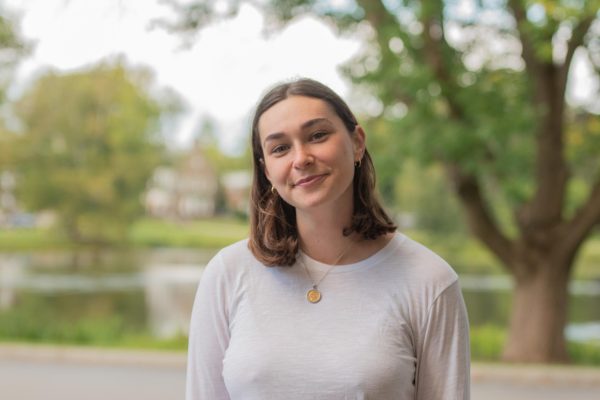
Sophie Karbstein is a sophomore from Jupiter, FL concentrating in Russian and peace and conflict studies. She has previously served as a staff writer for...


